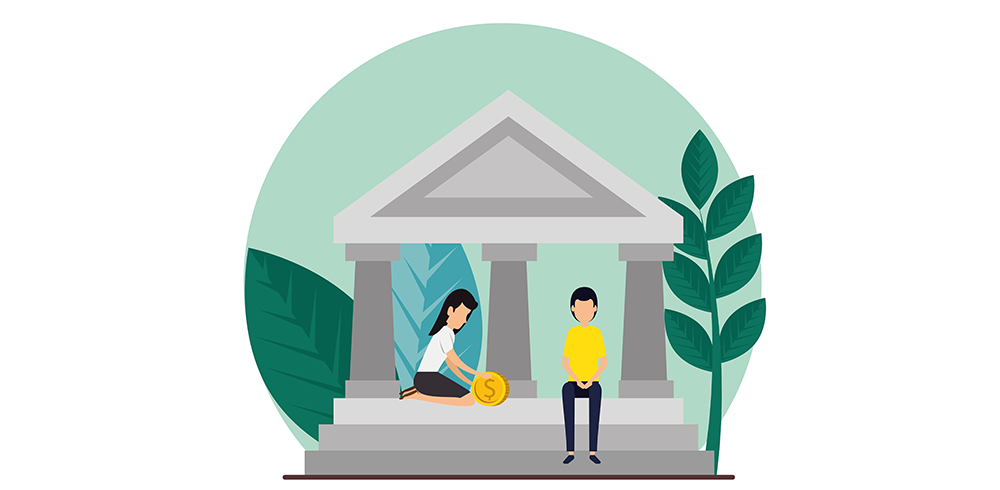When you borrow money from a bank or a lender, sometimes unexpected situations or any financial emergency can make it hard for you to pay it back on time. These tough times can be harsh to you and put you in situations which may not be favourable. In such cases, a moratorium period can be a helpful option.
Wondering what is moratorium period? Well, here is a brief guide on everything you need to know about it. In this article, we would understand what a moratorium period is, moratorium period benefits, how does a moratorium period work, its drawbacks, and more. It is always better to understand these aspects as they can help you a lot in managing loans.
What is a Moratorium Period?
In simple words, a moratorium period is like a timeout from paying your loan instalments. It is a period granted by your lender when are you facing tough financial times. With the help of the moratorium period, you get to focus on stabilising your finances without taking the immediate stress of loan repayments. However, keep in mind that it is a temporary relief and hence, you still owe your lender the money.
How Does a Moratorium Period Work?
Let’s take a look at the major aspects of getting a moratorium period to get insights into how does a moratorium period work.
- No Payments
- With a moratorium period in action, you do not have to pay your EMIs (monthly loan instalments) or any interest during this time.
- Interest Keeps Adding
- Note that even though you are not making payments, interest continues to accumulate on your outstanding loan amount.
- Loan Term Extension
- Yes, you get the loan term extension with the moratorium period. For example, if you take a 3-month moratorium, your total loan repayment time would increase by 3 months.
Why Do Banks Provide a Moratorium Period to Borrowers?
- It provides relief and helps borrowers during financial troubles.
- It also helps in preventing loan defaults as banks give borrowers time to arrange money and make payments.
- It helps customers feel supported, thereby, building trust.
- With the moratorium period, the risk for banks is reduced as it lowers the chances of unpaid loans.
Moratorium Example
The best way to understand any concept is through an example. So, here is the perfect moratorium example for you: Imagine you have a personal loan with a 6-month moratorium. Now, during these 6 months, you would not have to make any payments. However, once the moratorium ends, you would have to resume paying your EMIs. The 6 months are added to your loan tenure, so your overall repayment period becomes longer.
Moratorium Period RBI Guidelines
The Reserve Bank of India (RBI) is responsible for setting the guidelines for moratoriums including moratorium interest, moratorium loan benefits, and more. So, here’s what the RBI moratorium circular includes:
- Purpose
- The main purpose of a loan moratorium is to ease financial stress during emergencies like job loss or health crises.
- Who Can Apply
- As per the RBI loan moratorium, anyone who is experiencing financially tough times can apply for it.
- Application Process
- You need to apply to your lender with details of your situation. The lender then would review your application and decide whether to grant the moratorium or not.
- Interest During Moratorium
- As mentioned earlier, the moratorium interest would continue to add up on the outstanding loan balance.
- Credit Score Impact
- This is quite a significant part you must know! Not paying during a moratorium would not hurt your credit score.
Eligibility for a Loan Moratorium Period
If you are looking to apply for a moratorium period, here are the eligibility criteria you must meet:
- You must show that you are genuinely struggling financially.
- Your lender should assess your application and decide whether to approve the moratorium.
Note: Different types of loans (personal loans, education loans, travel loans, medical loans, etc.) may have specific eligibility criteria, and hence, it is important to check specifics with your lender.
Also Read: What is Credit Control and How Does it Work?
Moratorium Period Calculation
The duration of a moratorium period is often decided by your lender and specified in your loan agreement. Make sure to understand exactly how long the moratorium lasts and how it would affect your overall loan repayment schedule before making a decision.
How is Interest Calculated on a Loan During a Moratorium Period?
Interest during a moratorium period is calculated based on the outstanding loan amount and the loan’s interest rate. The interest accumulated during the period gets added to your principal loan amount, and this increases the total amount you owe once the moratorium ends.
Benefits of a Moratorium Period
Here are the major moratorium period benefits you can avail:
- Provides temporary relief from the burden of loan repayments during tough times.
- Helps you manage your cash flow better, especially when facing unexpected expenses
- Not making payments during a moratorium would not negatively impact your credit score.
Disadvantages of the Moratorium Period in a Loan
There are also several drawbacks you must consider:
- Interest continues to add up, thereby, making your loan more expensive overall.
- Your loan repayment period gets longer.
Tips to Get a Moratorium on a Loan
Keep in mind the following points when applying for a moratorium period with your lender:
- Reach out to your lender as soon as you face financial difficulties.
- Be prepared to submit documents that support your financial problems.
- Make sure you fully understand how a moratorium would affect your loan and finances before proceeding.
Loans that Come with a Moratorium Period
Personal loans, home loans, and education loans are the major types of loans that offer moratorium options.
Difference between Moratorium and Grace Period
A moratorium allows you to temporarily stop making payments, however, interest continues to add up. On the other hand, a grace period is a short period after your due date during which you can still make payments without any charges.
Conclusion
So overall, a moratorium period is a helpful option for you if you are facing financial challenges. But before opting for a moratorium, make sure to consider its implications on your loan and finances.
If you are looking for quick and convenient personal loans in India for your urgent needs, consider CASHe. Download the CASHe app today and explore its instant personal loans, home renovation loans, education loans, etc.
FAQs
1. Are only education loans eligible for moratorium?
No, various types of loans may offer moratorium options depending on the lender’s policies.
2. What is the maximum period of moratorium?
The maximum moratorium duration usually ranges from 3 months to 6 months.
3. Do you have to pay for interest in the moratorium period?
Yes, you have to pay interest even during the moratorium period.
4. Is moratorium mandatory?
No, it depends completely on your financial situation.
5. What is the moratorium period in India?
The moratorium period can vary depending on the situation, however, it is usually from 3 months to 6 months in India.








